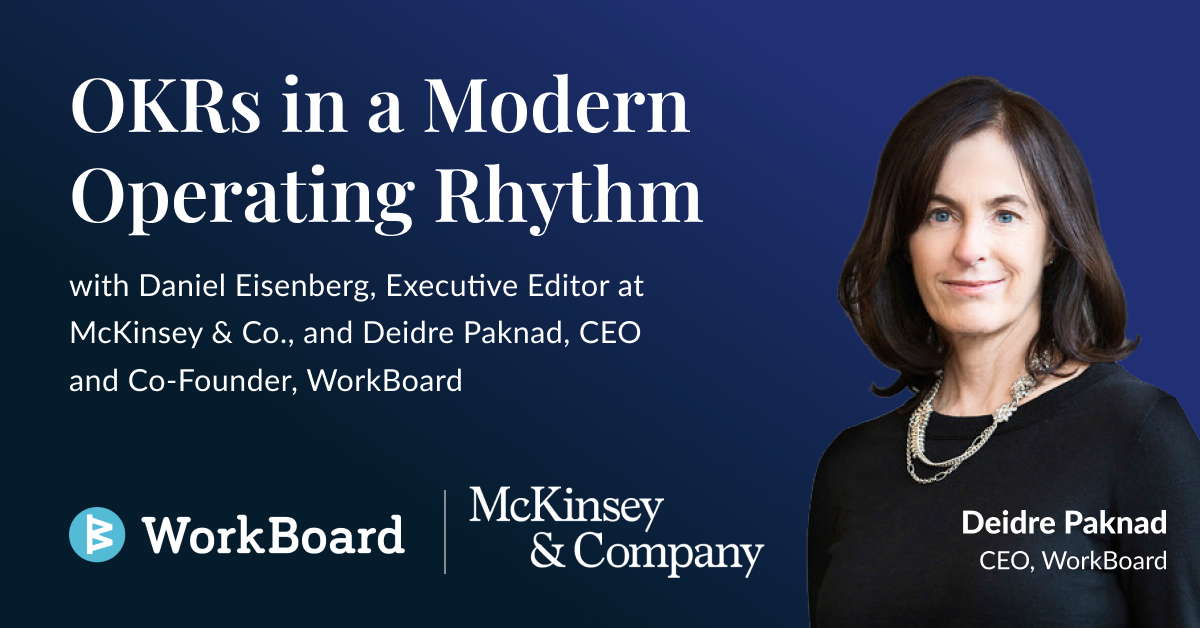Using OKRs to align and achieve your best outcomes is quickly becoming a strategy execution norm... but OKRs are not MBOs and KPIs with another name. Rather than simply measuring operational metrics or individual performance, OKRs provide a common vocabulary and quarterly process for organizations and teams to articulate and align what they want to achieve, focus efforts on measurable outcomes, and iteratively learn with data over time.
Here are my first principles for success with OKRs:
1. Aim for great
Instead of target results that are the safest or most certain outcomes, define the best possible results. By defining them, you resource and prioritize them.
2. It's a Team sport
OKRs are set by and for teams, rather than defined by managers and assigned to team members. Team authorship leads to higher ownership and stronger inclusion of diverse perspectives.
3. Fast pace
OKRs are set quarterly. When teams define best outcomes in 90 days, time is a constraint to sharpen priorities and trade offs. Every 90 days, there is an opportunity to assess what's changed and learn from what's achieved; it creates agility and adaptability.
4. Drive with headlights
Instead of end of period measures that give you signal when it’s too late, key results shine a bright light on the ground in front of you so you can navigate well.
5. Leverage
The 3 hours teams spend defining objectives and key results they want to achieve in the next 90 days ensure everyone's time is well spent and high impact. The strategy executed is the sum of everyone's weekly choices; setting OKRs ensures those choices are strategic.
6. Global & local
Instead of top down or bottom up, OKRs are localized by teams into their nouns, verbs and numbers with global coherence and alignment. They can be set asynchronously and reconciled rather than in a sequential cascade.







